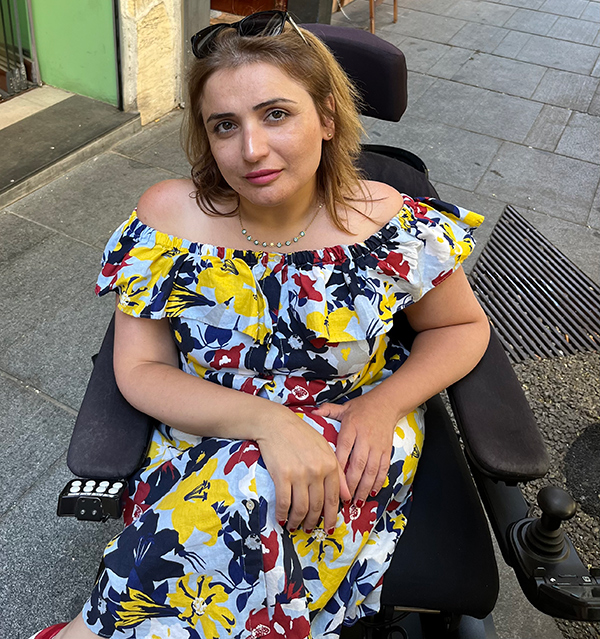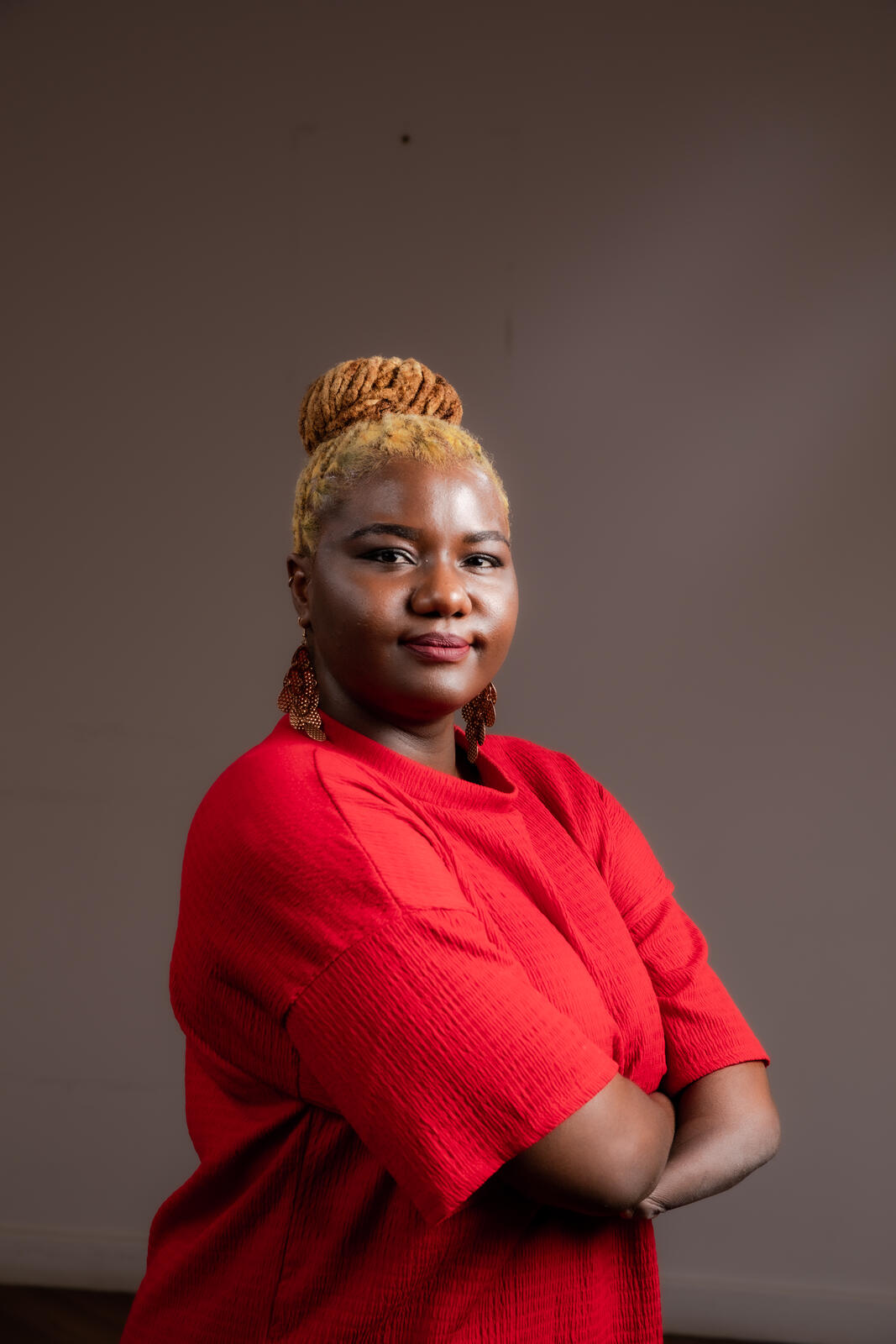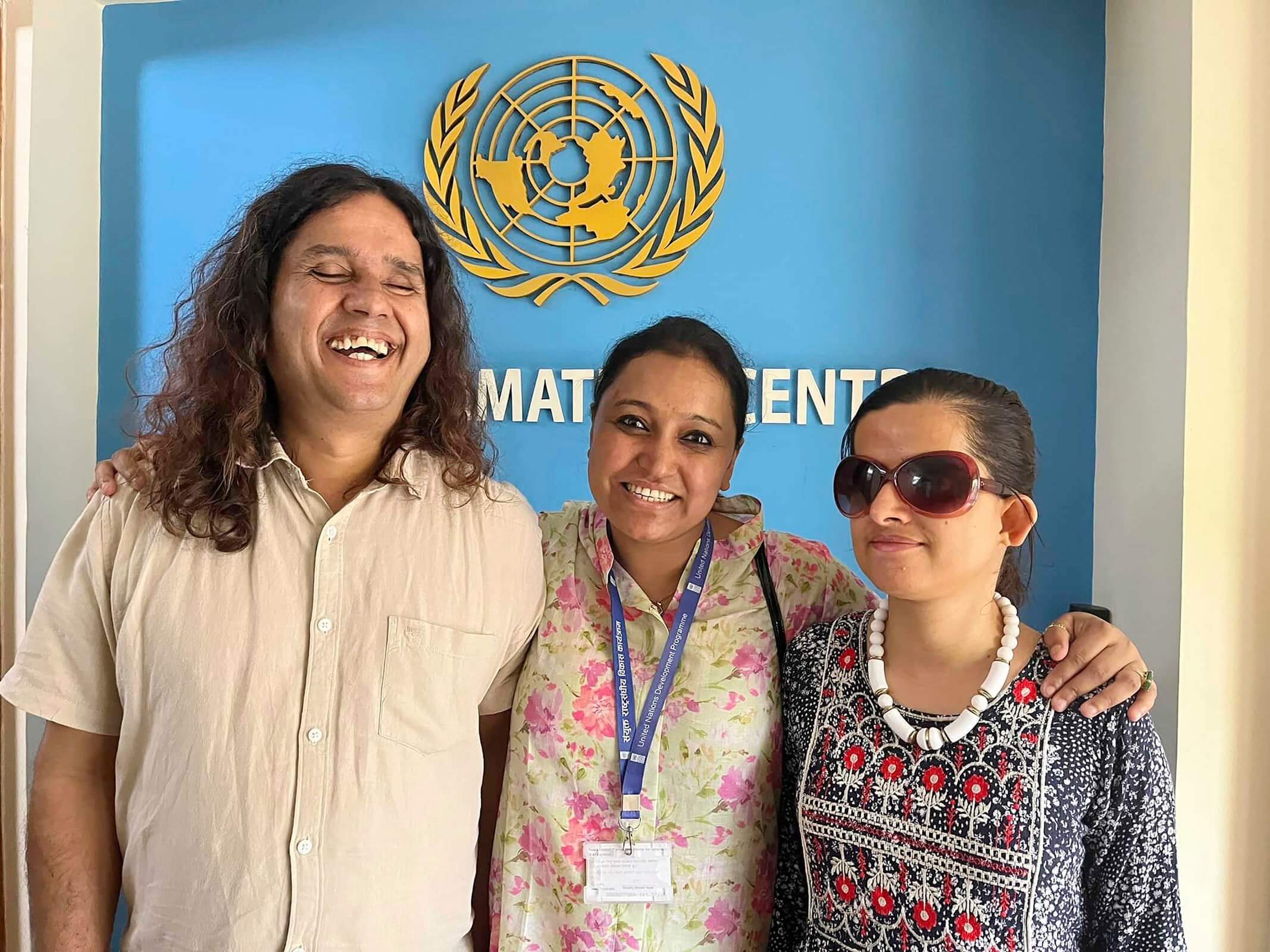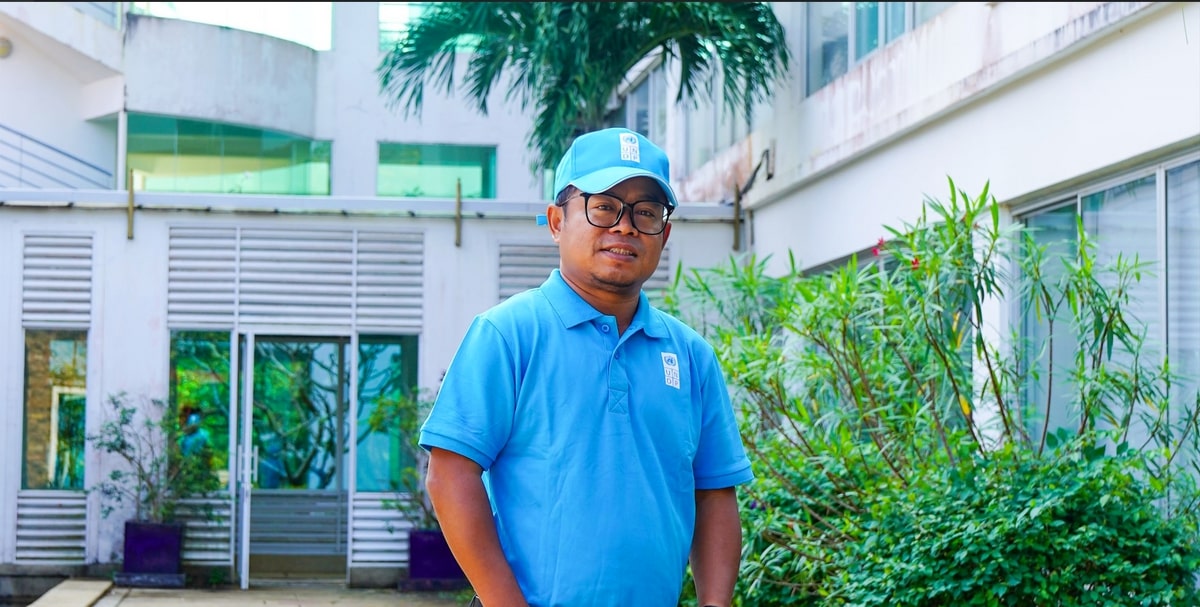

From Syria to Sweden: channeling energy to uplift persons with disabilities
Chavia Ali (Syria) served as a UN Volunteer Assistant Research Officer with the UN Development Programme (UNDP). Although she was assigned to the Regional Bureau of Arab States in New York, due to COVID-19 Chavia was telecommuting from Sweden, where she sought refuge several years ago. Chavia's assignments were funded by the Government of Sweden.
Having experienced discrimination herself, Chavia has always felt the need to dedicate herself to tackling challenges faced by persons with disabilities. For as long as she can remember, volunteering has always been her passion.
During her university years at Aleppo University, Syria, Chavia founded an advocacy organization for persons with disabilities. "At the time, I was fortunate enough to have my father’s support, so I was able to fully dedicate myself to improving the everyday lives of persons with disabilities in my home country," she recalls.
Her dedication didn’t falter when she came to Sweden as a refugee, fleeing the war in Syria. Struggling to establish herself in a new environment, she helped fellow refugees with translations, writing job applications, and filling in unemployment and insurance forms. She also volunteered at nursing homes, where she was able to improve her Swedish language skills.
A lot of in-person volunteer work came to a halt due to COVID-19, so serving remotely as a UN Volunteer for UNDP was a good way for Chavia to continue her volunteer engagement during this challenging period.
Initially, she joined the Communications Office of the Regional Bureau for Arab States. However, due to challenges the region faced, she was asked to help with the portfolio dedicated to persons with disabilities, drawing from her personal and professional experience as an advocate.
She started her assignment by collecting information and interviewing focal points about the various projects country offices had for persons with disabilities. Chavia then used a mapping report to assess the adherence of the regional bureau to the UN Disability Inclusion Strategy (UNDIS).
Chavia then used this report and the UNDIS findings to craft a regional approach that provided a blueprint for the regional bureau to improve the inclusion of persons with disabilities, both internally and in their programming. She also facilitated a meeting of the country office focal points in order to coordinate efforts and share best practices.

Like many others, Chavia faced challenges due to COVID-19. She believes the adverse effects of working on a computer all day and missing social interaction had a compounded effect on persons with disabilities.
She says, "Self-care is always important. I recommend keeping active and exercising as much as possible throughout the day, as we are vulnerable to further loss of function.”
On the other hand, there were also some bright sides to remote working. Indeed, for people with disabilities, Chavia says, "remote work eliminated the stress that comes from worrying about the accessibility of workplaces and facilities and concerns about the commute to and from work. At the same time, it is good that we are entitled to reasonable accommodation, which does facilitate matters for us.”
In closing, she shares a message with those who share similar aspirations to volunteer despite their disabilities:



